Heritage Communities Blog
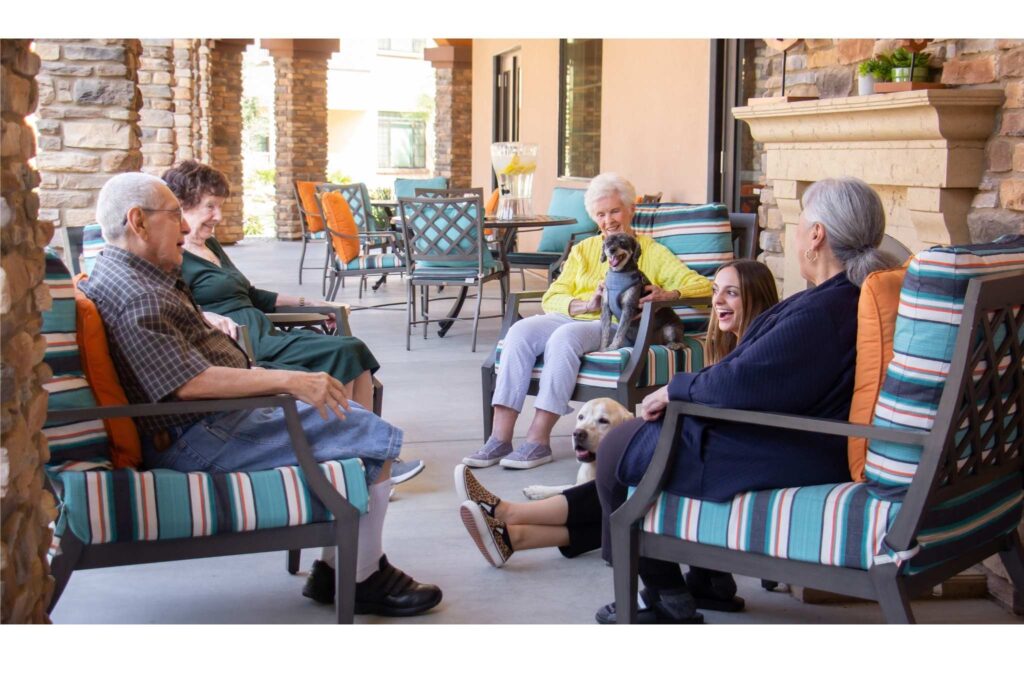
10 Myths About Senior Living (And How to Talk Through Them)
Explore 10 of the most common concerns we hear from seniors and families exploring senior living... and how to have a constructive conversation.
Read Article
Who’s Who In a Senior Living Community: Get to Know Us
Behind every great day at Heritage is someone special making it happen… these are the people you’ll see in our communities!
Read Article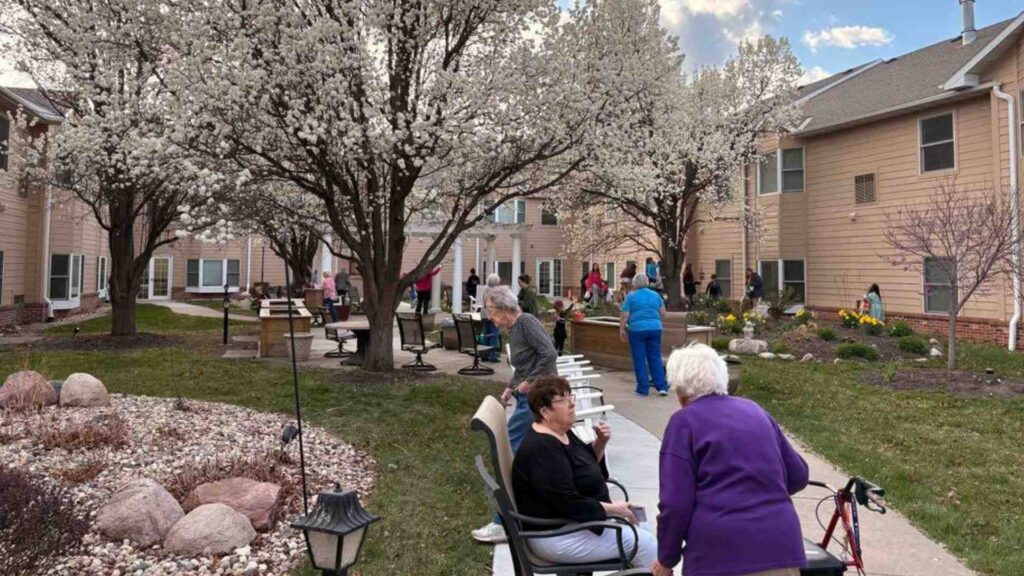
Heritage, Out and About! How Community Outings Help Seniors Live Better
Assisted living isn’t just about care. It’s about helping golden-years adults feel good again! Laughing more, making new friends, and finding purpose in each day. From planned outings into the city to get-togethers in the courtyard, continuing to explore the world is an important part of joining a vibrant community.
Read Article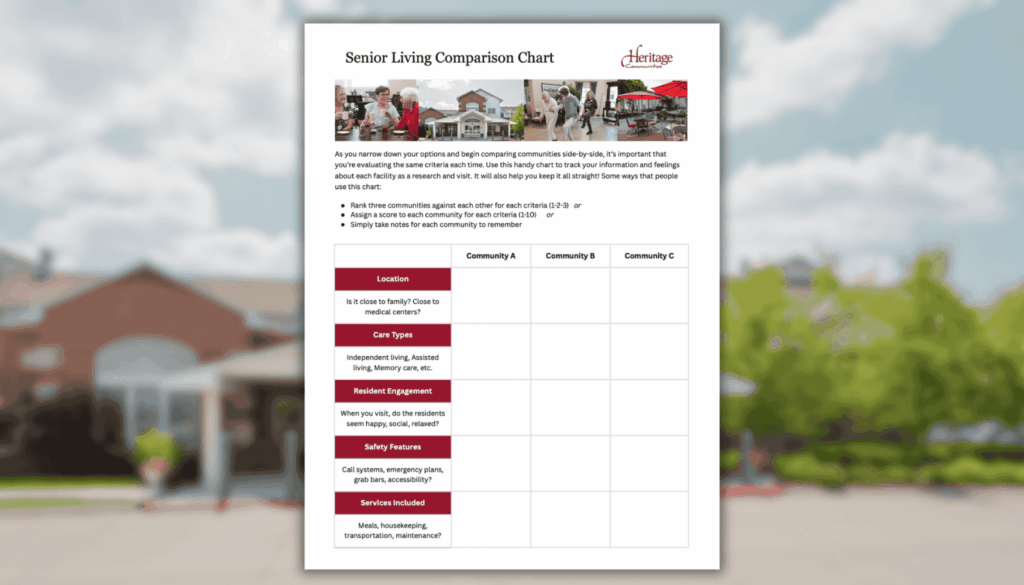
A Simple Senior Living Comparison Chart
Maybe you’ve visited a few communities, gathered brochures, or taken a tour or two. Even with great amenities and caring staff, it’s still hard to know which place is the right fit. That’s where our Senior Living Comparison Chart comes in.
Read Article
Their Words: Stories from Heritage Communities
These are just some of the stories of real people who've joined our communities over the years, as residents or one of our associates. If you're considering a big move for yourself or a loved one in the near future, take a few moments to hear the experiences of others who've done it!
Read Article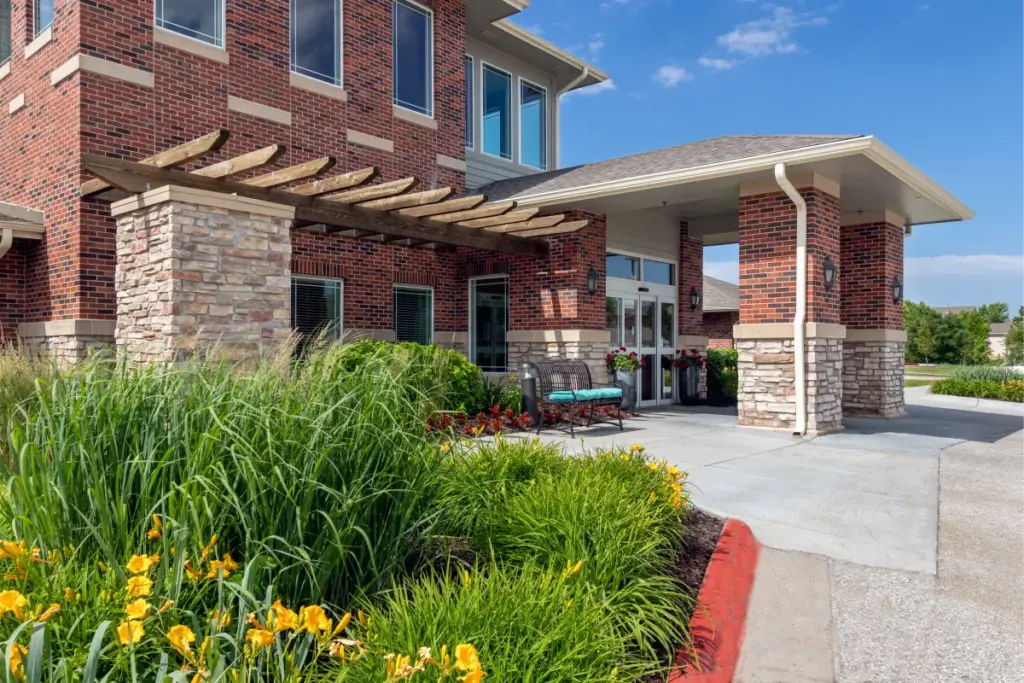
Moving Day: A Step-by-Step Guide to Transitioning to Senior Living
Moving to senior living - and the downsizing that comes with - doesn’t have to be scary. The advice in this article is gathered from our experienced residents and staff, and promises to help make the big move manageable.
Read Article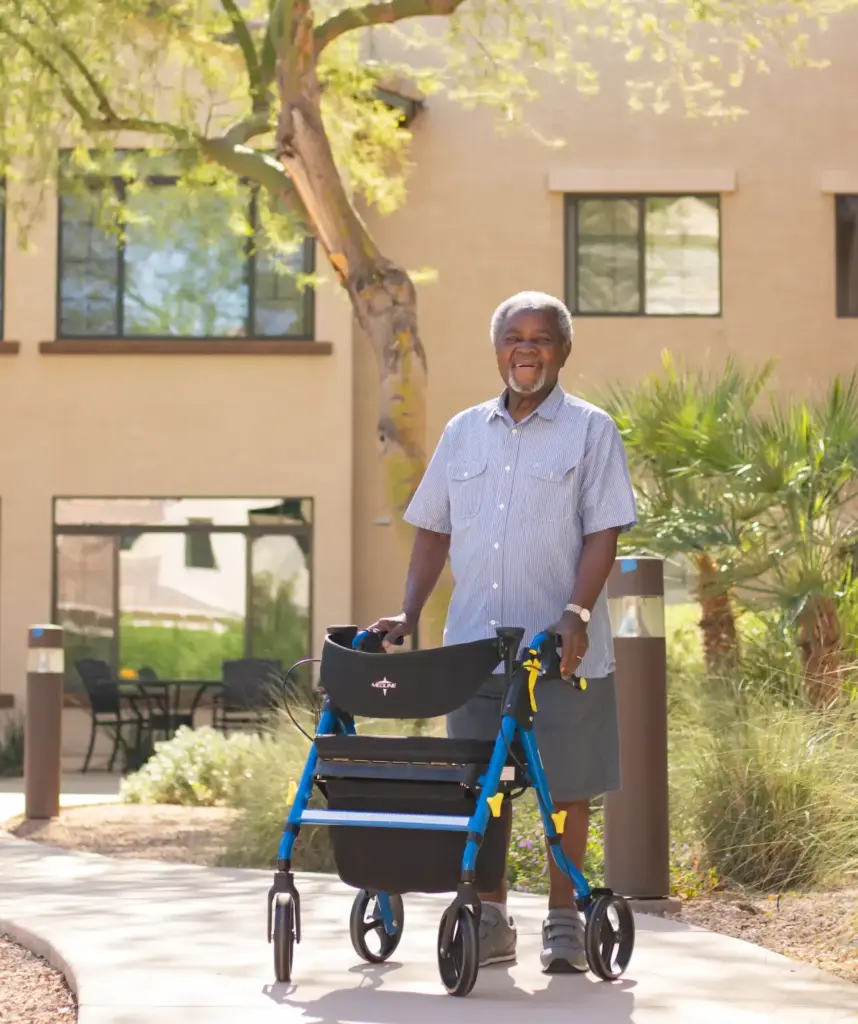
How to Talk to Your Parent About Senior Living… Without an Argument
The experienced Heritage Communities staff has put together advice based on the versions we’ve observed from our residents’ families. Follow the tips and download our handy "Conversation Card" to get started!
Read Article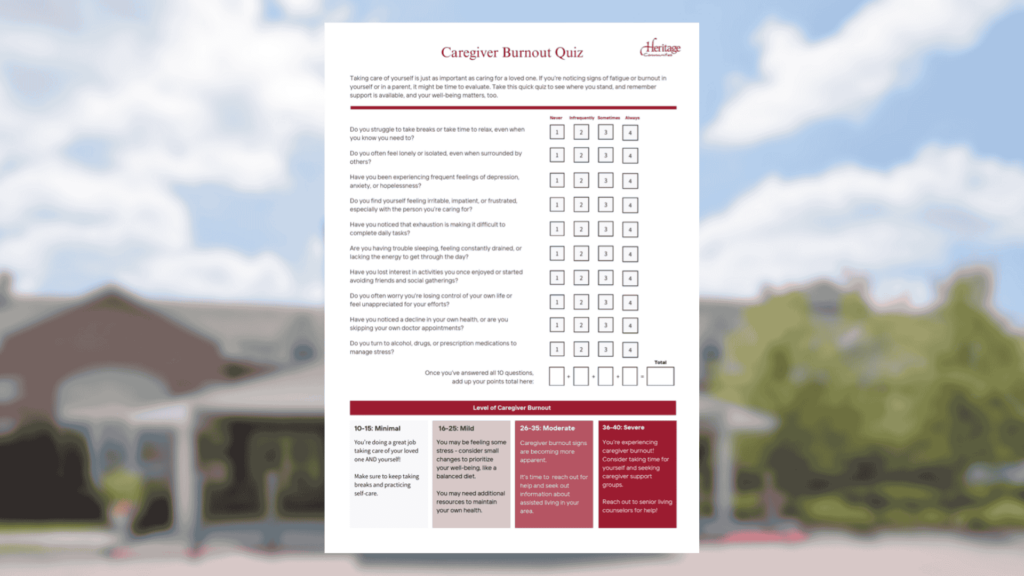
Caregiver Burnout Quiz (Free Download!)
Caregiver burnout is real, and should be taken seriously! Taking care of yourself or encouraging a caregiver in your family to rest isn’t selfish. It’s essential. If any of this sounds familiar, take our free caregiver burnout quiz to see how you're doing.
Read Article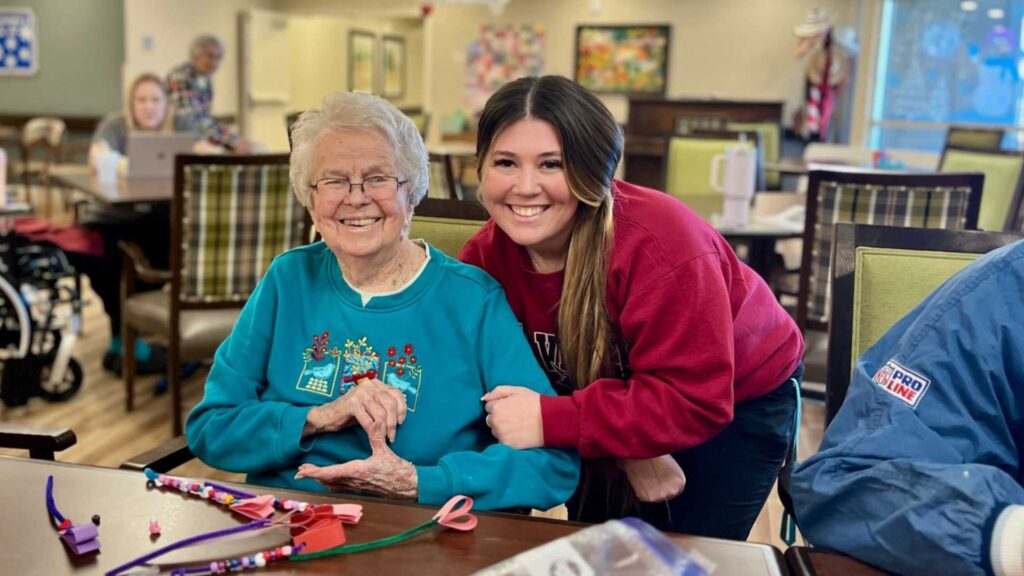
Essential Tips for Family Caregivers
Organizing daily tasks, creating a safe and engaging environment, finding moments to care for yourself... managing senior care can be overwhelming. These essential tips will help you navigate this important role with confidence, balance, and peace of mind.
Read Article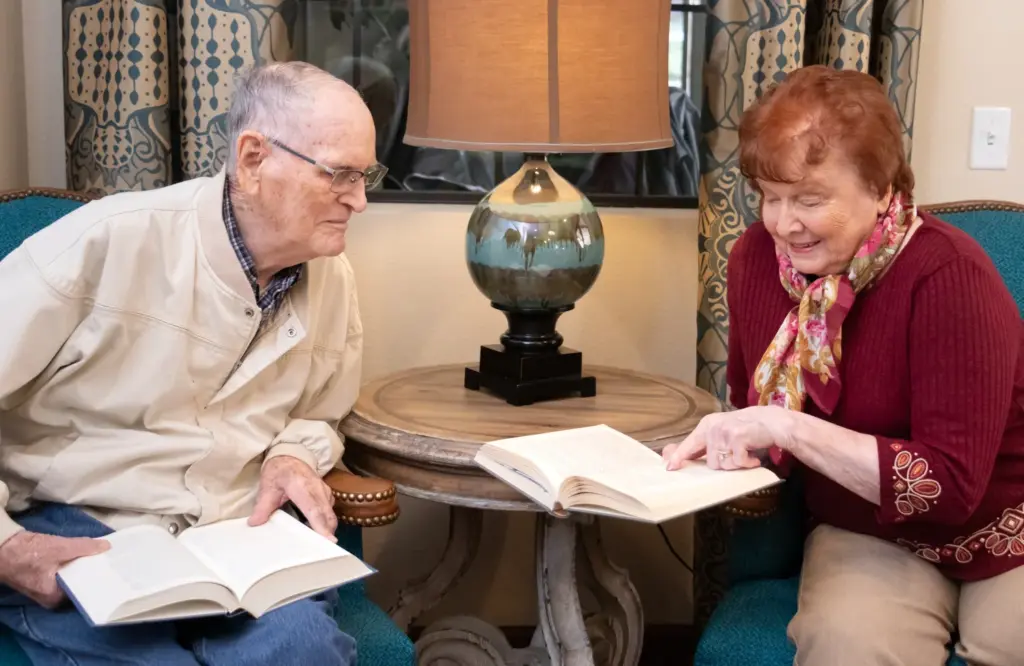
Independent Living Activities: Discovering the Joy of a Connected Community
Your golden years are about more than where you live; they’re about how you live - that’s why our communities offer independent living activities that fill your days with moments that make life vibrant, meaningful, and connected.
Read Article